
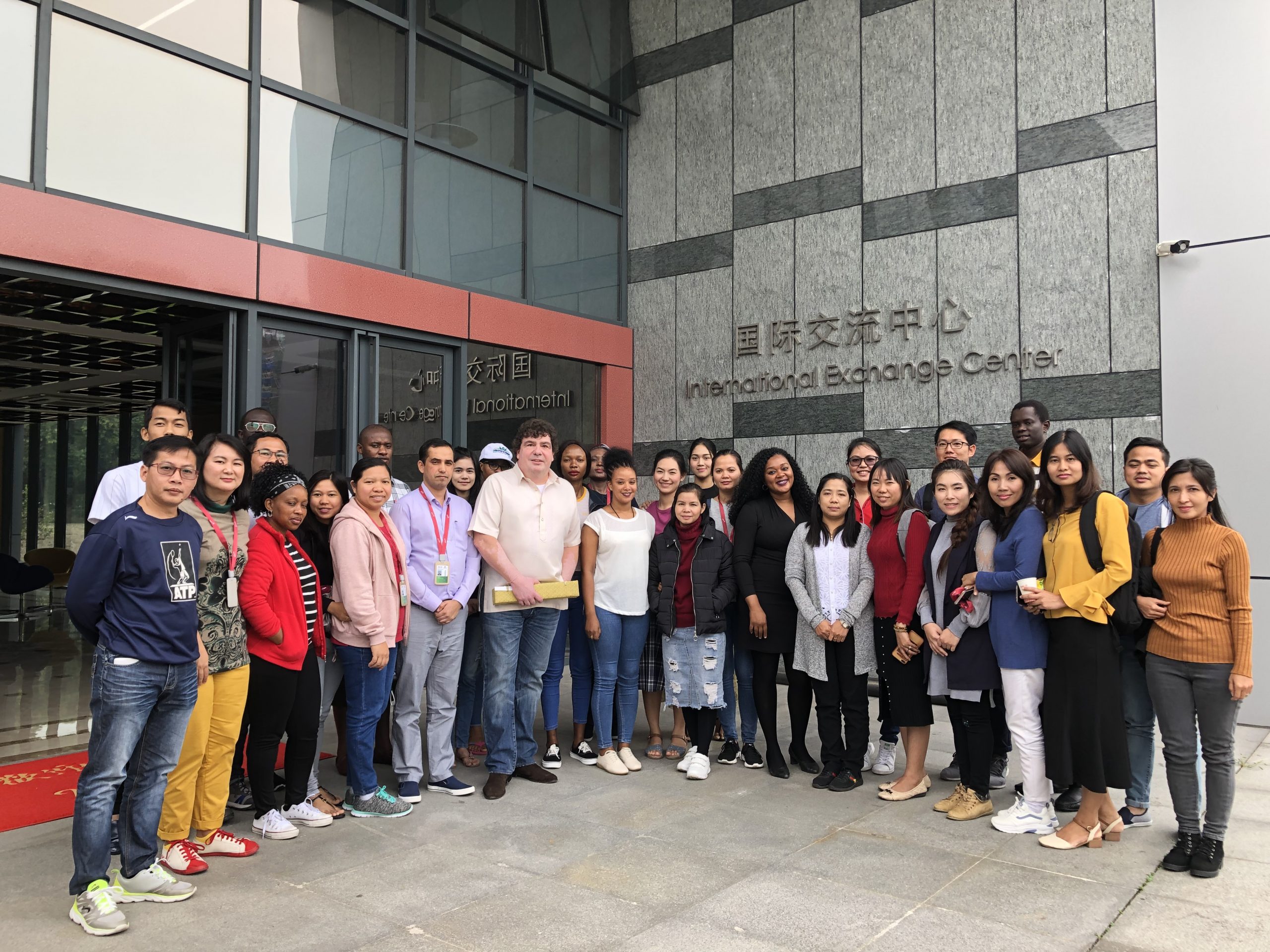
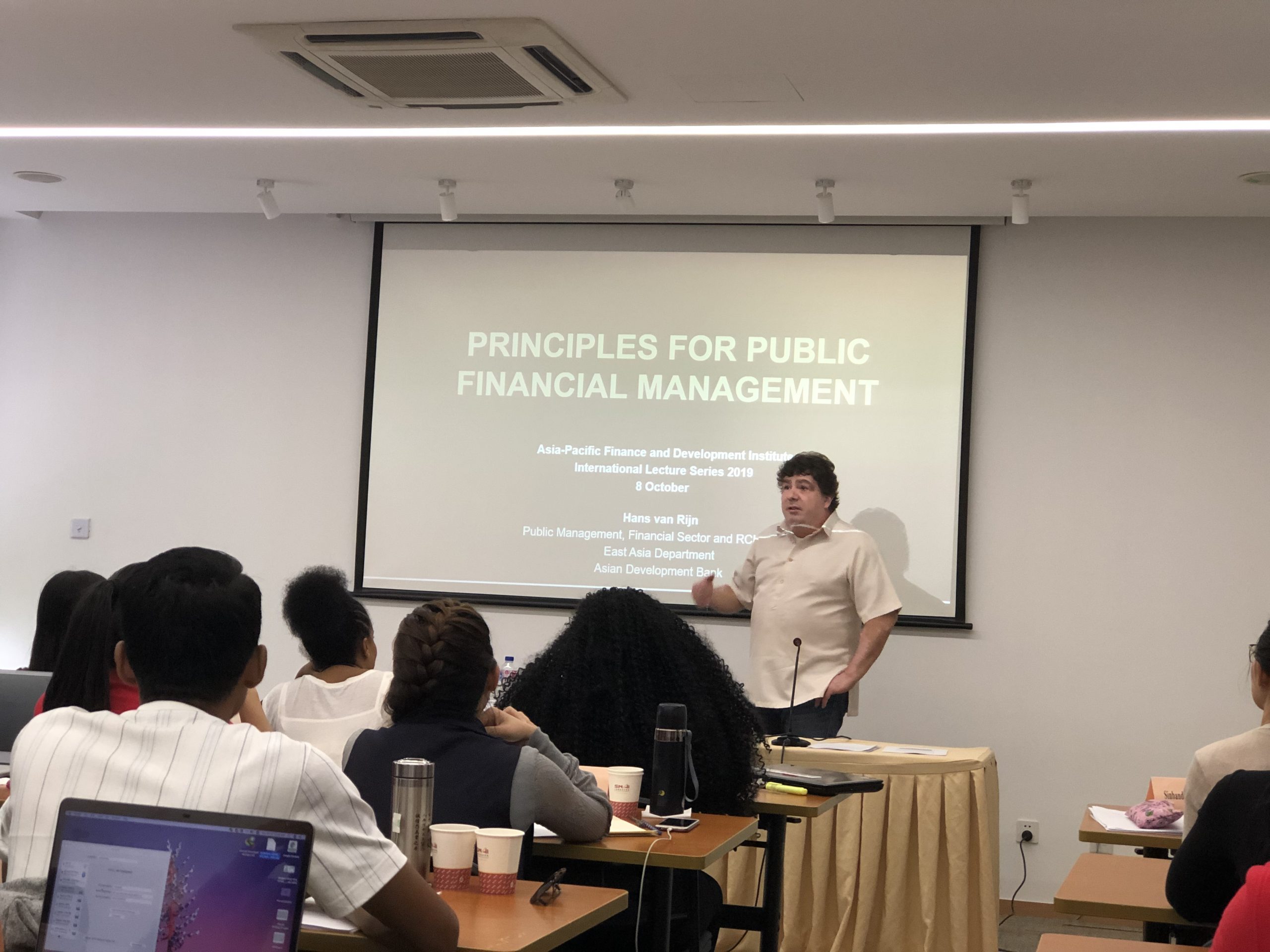
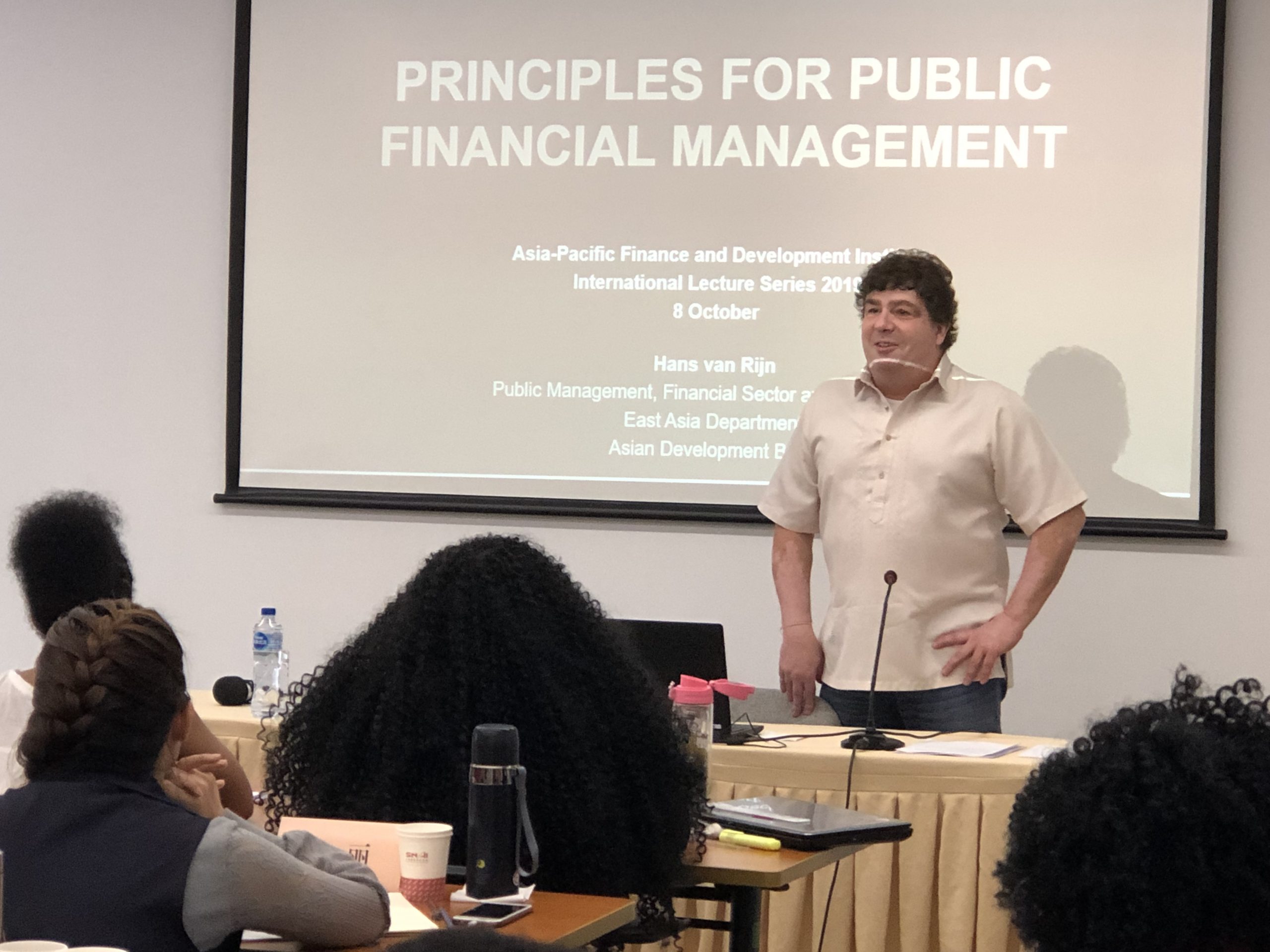
In the first lecture , East Asia Department’s Hans Van Rijn discussed public financial management’s role in fiscal policy, including its objectives, characteristics of prudent public finance, strategic budgeting, and debt management approaches.
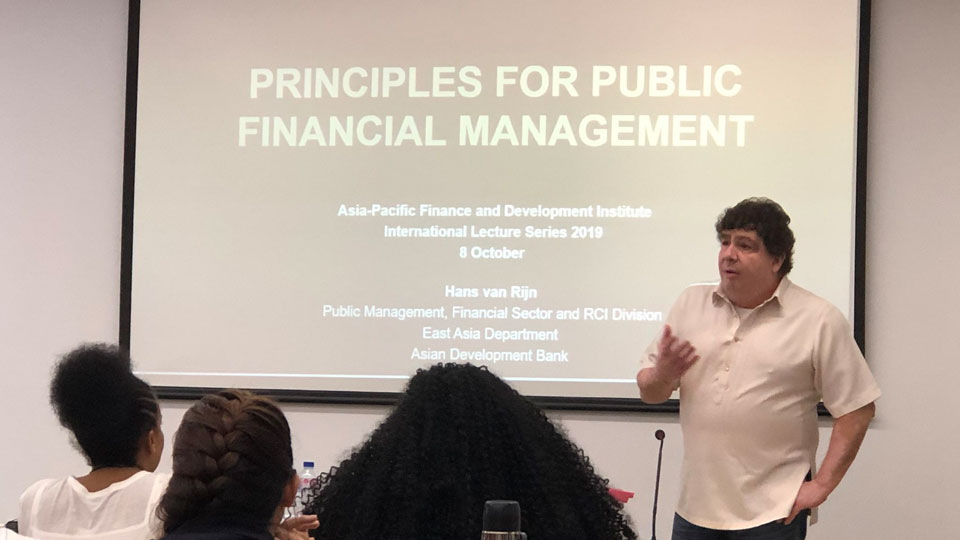
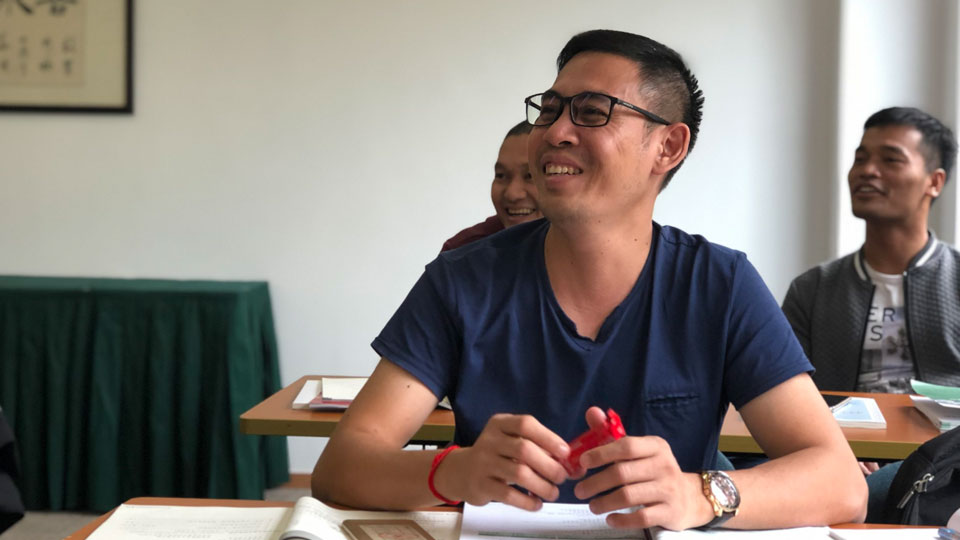
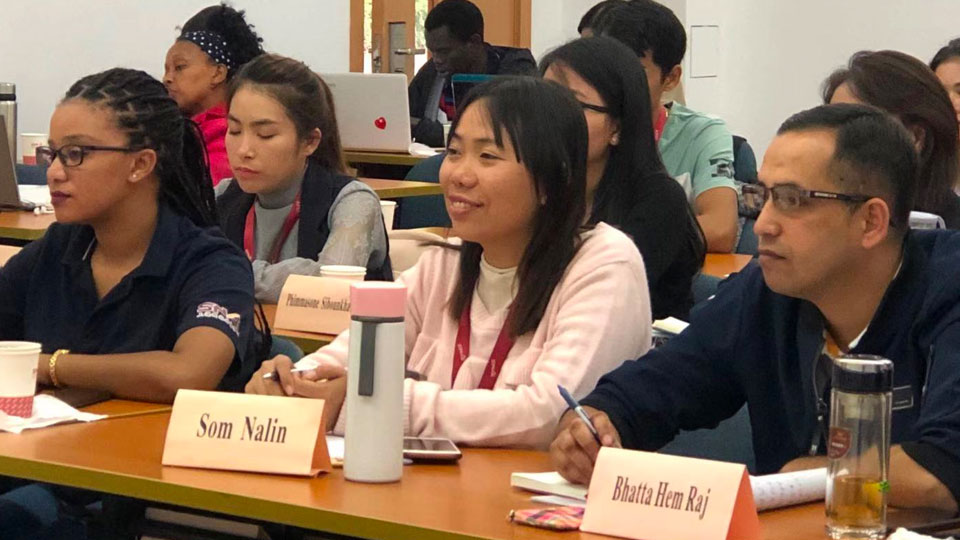

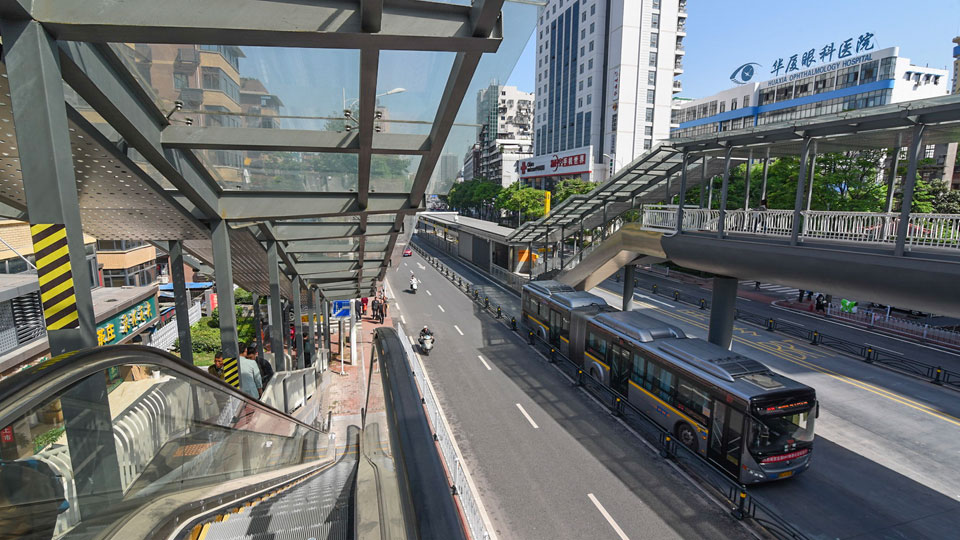




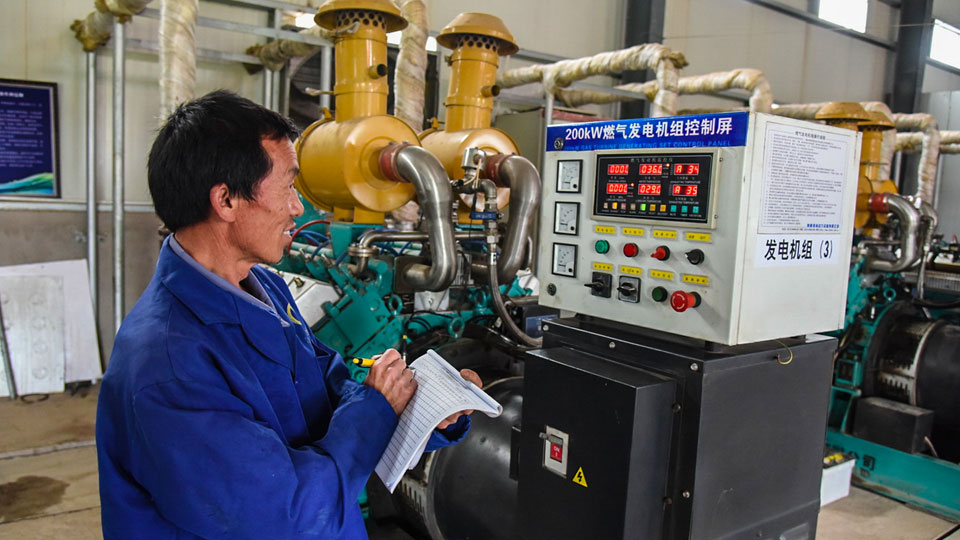
© 2025 Regional Knowledge Sharing Initiative. The views expressed on this website are those of the authors and presenters and do not necessarily reflect the views and policies of the Asian Development Bank (ADB), its Board of Governors, or the governments they represent. ADB does not guarantee the accuracy of the data in any documents and materials posted on this website and accepts no responsibility for any consequence of their use. By making any designation of or reference to a particular territory or geographic area, or by using the term “country” in any documents posted on this website, ADB does not intend to make any judgments as to the legal or other status of any territory or area.